Edition: 25 September to 6 October 2023
RISK REDUCTION
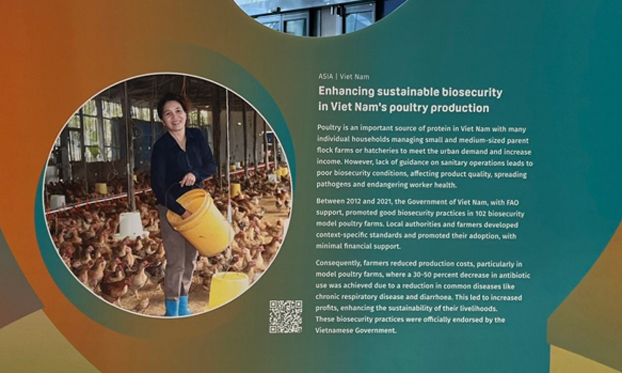 ©fao/Pawin Padungtod | VIET NAM Enhancing sustainable biosecurity in Viet Nam’s poultry production |
ONE HEALTH
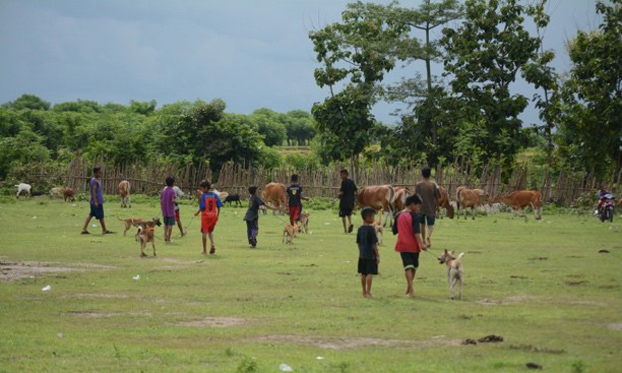 ©fao/Sadewa | INDONESIA Oral rabies vaccination shows promising results in Bali, Indonesia |
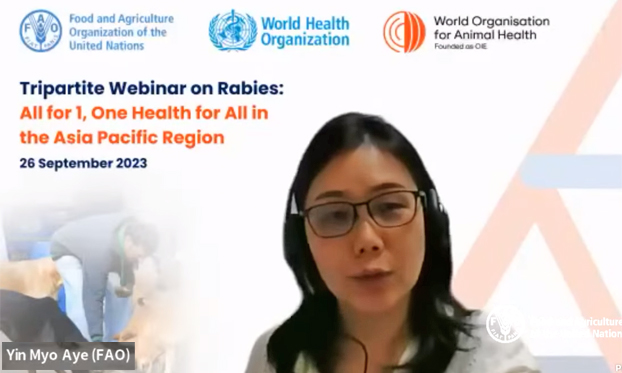 ©fao/Yin Myo Aye | ASIA AND THE PACIFIC REGION Webinar on rabies: all for 1, One Health for all |
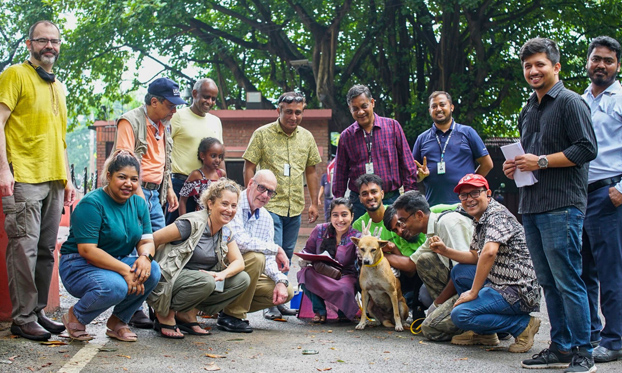 ©fao/Asif Jilani | BANGLADESH Dog vaccination campaign conducted in Dhaka |
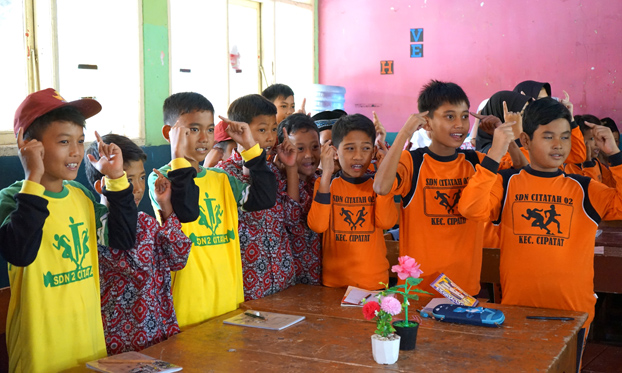 ©fao Indonesia | INDONESIA Zoonoses integrated in schools’ curriculum to prevent rabies during World Rabies Day 2023 On the World Rabies Day, the Indonesian Ministry of Agriculture (MoA) together with FAO and Balai Besar Guru Penggerak (BBGP) West Java launched an empowerment programme to raise the awareness of teachers and educational staff of school movers on zoonoses at the elementary and secondary education levels in West Java province on 7 October 2023. In the spirit of 2023 WRD global campaign theme all for 1, One Health for all, this multisectoral collaboration took a new innovative approach by integrating zoonoses education for the elementary and junior high school students through their curriculum. On this occasion, Director of Veterinary Public Health of the MoA and Head of BBGP West Java signed a cooperation agreement to inaugurate the programme. Rabies is one of six cross-sector priority zoonotic diseases in Indonesia. Rabies was the first zoonotic disease to be campaigned as a model for starting this programme. |
PARTNERSHIP
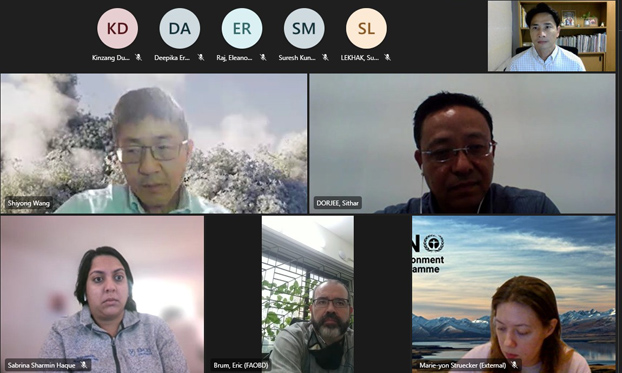 ©fao/Kachen Wongsathapornchai | ASIA AND THE PACIFIC REGION Discussion on strengthening One Health collaboration in the South Asia region FAO ECTAD Regional Manager Kachen Wongsathapornchai and FAO ECTAD Country Team Leader in Bangladesh, Eric Brum, attended a meeting with the World Bank focal points in the South Asia region to discuss on strengthening One Health collaboration and effectively implementing relevant projects in the region. The discussion highlighted the opportunities and challenges in managing activities in South Asian countries. WHO, WOAH and UNEP also joined the meeting. |
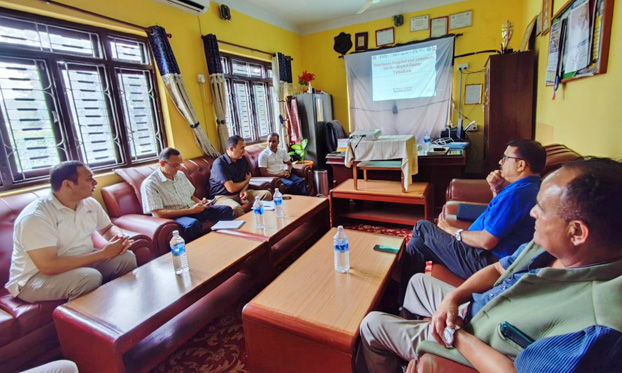 ©fao/SURENDRA KARKI | NEPAL Field mission with USAID country team FAO, along with the USAID Country Mission team and government counterparts from animal and human health sectors participated in a field mission in Gandaki province from 24 to 27 September. The team visited Pokhara and Tanahun and held discussions regarding the implementation of the upcoming Global Health Security Program project. |
ANTIMICROBIAL RESISTANCE
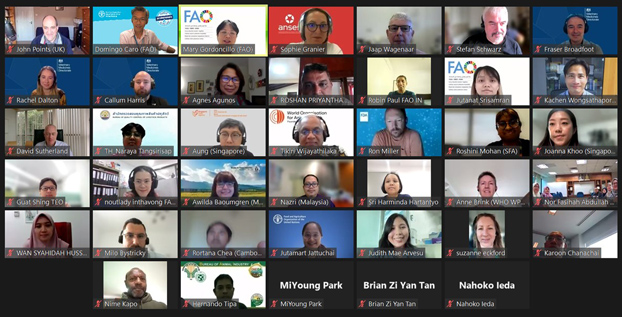 ©FAO | ASIA AND THE PACIFIC REGION Regional consultations for the development of the Regional Guideline Volume 6 held FAO and the Veterinary Medicines Directorate of the United Kingdom of Great Britain and Northern Ireland completed the initial draft of the Regional Guidelines for Monitoring and Surveillance of Antimicrobial Resistance, Use and Residues Volume 6 (monitoring and surveillance of antimicrobial residues in foods of animal origin). The draft was presented to experts and stakeholders in the region in a series of consultations held on 12 September and 3 October. |
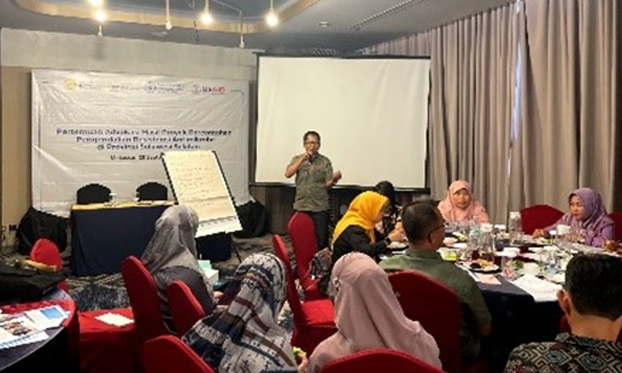 ©FAO/Saskia Soedarjo | INDONESIA Advocacy meeting on antimicrobial stewardship in South Sulawesi province
FAO held an advocacy meeting with local government and the private sector on the adoption of farm biosecurity and prudent use of antimicrobials under the infection, prevention and control (IPC) and antimicrobial stewardship (AMS) programme and veterinary control number certificate. These were the results from a pilot project for the AMR control programme in poultry farms implemented in the South Sulawesi province since May 2022. The pilot project has concluded, and the findings have been shared with the local government and commercial sector for further action. The results indicate a notable improvement in the adoption of IPC and AMS practices, with 25 percent of farmers consistently implementing IPC and AMS protocols. |
CAPACITY BUILDING
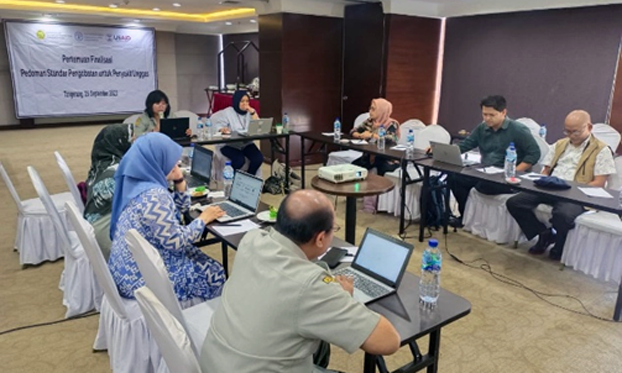 ©FAO/Gunawan Utomo | INDONESIA Meeting on finalization standard treatment guideline for poultry diseases
The Directorate of Animal Health of the Ministry of Agriculture (MoA) and FAO, with support from USAID, held a meeting to finalize the standard treatment guidelines for poultry disease on 25 September 2023. Participants discussed eight chapters related to guidelines for using antimicrobials in respiratory, digestive, reproductive, nervous, systemic, immunosuppressive, locomotor and young chicken system disorders. Related associations, such as the Indonesian Poultry Veterinarian Association, Indonesian Veterinary Medicine Association, Indonesia Veterinary Pharmacy and Pharmacology Association, and Veterinary Medicine Commission of MoA attended the meeting. |
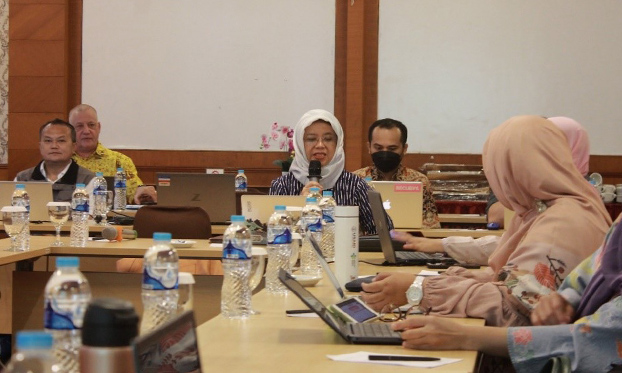 ©FAO/Jamal Ali | INDONESIA SIGAAP information system training with cross-sectoral partners and ministries
After the completion of SIGAAP system development—an information system for detection, prevention and control of disease threats—the Coordinating Ministry for Human Development and Cultural Affairs Indonesia (CMHDCA) invited FAO as trainers for author SIGAAP training from 27 to 28 September 2023. This training aimed to demonstrate SIGAAP website operations to all authors and train them to carry out their duties and roles as SIGAAP contributors. A total of 35 participants were trained, representing the CMHDCA, Ministry of Environment and Forestry, National Agency of Drug and Food Control, Ministry of Home Affairs, Ministry of Health, Ministry of Agriculture, WHO and USAID Infectious Disease Detection and Surveillance (IDDS). |
SURVEILLANCE
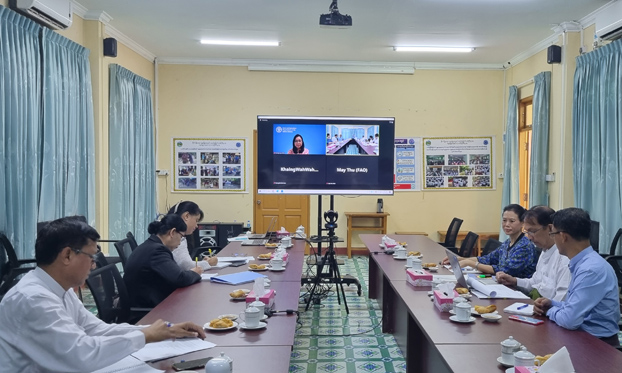 ©FAO/Yin Myo Aye | MYANMAR AND ASIA AND THE PACIFIC Technical discussion on avian influenza virus surveillance FAO had a technical discussion with officials from the Myanmar’s Livestock Breeding and Veterinary Department (LBVD) on 2 October 2023. The meeting discussed about the previous and potential activities on avian influenza virus surveillance, antimicrobial resistance and antimicrobial usage. Since 2006, when the first highly pathogenic avian influenza outbreak occurred in Myanmar, FAO supported surveillance in live bird markets in cooperation with LBVD. The surveillance improved understanding of virus circulating strains and, thus, provided information for effective outbreak control. |
AFRICAN SWINE FEVER (ASF)
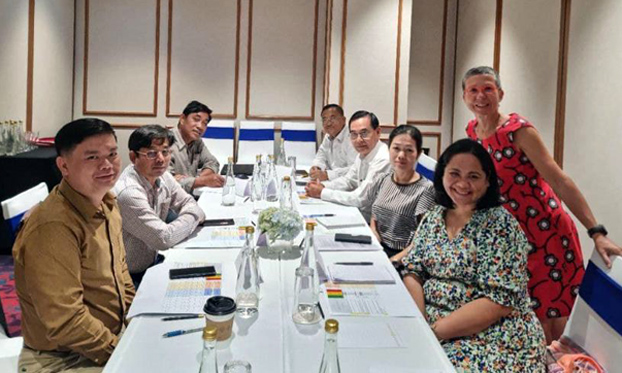 ©BIG PROJECT | ASIA AND THE PACIFIC REGION Working together with other ASF players in the region FAO continues its effort to harmonize ASF support for the region with other partners, coordinating to establish synergies by regularly communicating and collaborating with others in the region. FAO participated in the workshop on biosecurity assessment to prevent ASF, organized by the Biosecurity in Pig Production (BIG project) funded by France, targeting Cambodia, Lao People’s Democratic Republic, the Philippines and Viet Nam. FAO shared the work done to harmonize ASF work in the region through coordination with different implementers on biosecurity. Also, FAO contributed on the development of theory of change for the ASF detection and control plan for Southeast Asia wild pig populations, partnering with the Science for Nature and People Partnership. FAO will continue to work together with other partners in the region to maximize the efforts on ASF. |
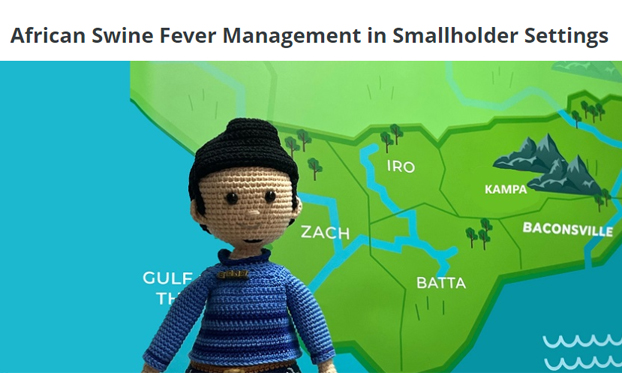 ©FAO | ASIA AND THE PACIFIC REGION Virtual Learning Centre course on ASF management in smallholder settings The virtual learning course on ASF management in smallholder settings was launched on 27 September. This course aims to support smallholder pig farmers and field workers to effectively manage ASF in the Asian context. This course uses simulated outbreak scenarios and follows the principles of good emergency management practices (GEMP) including preparedness, prevention, detection, response and recovery. You can take this course at your own pace. Enrol in the course here.
|
RISK COMMUNICATION
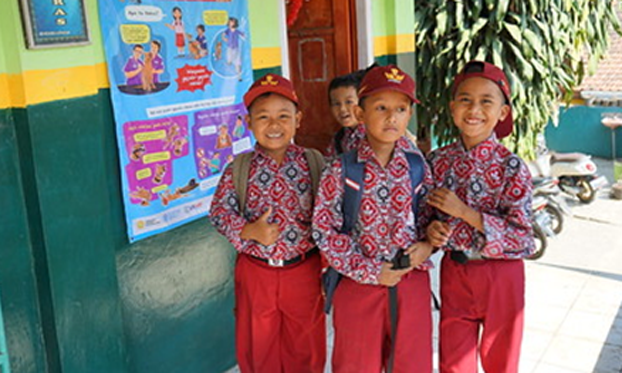 ©FAO/ALIA Dwirahmani | INDONESIA Rabies campaign materials dissemination FAO, together with representatives from the Transformational Teacher Center (known as Balai Besar Guru Penggerak/BBGP) West Java, West Bandung Regency Education Office, and West Bandung Department of Fisheries and Livestock visited two schools to monitor the dissemination of rabies information, education and communications materials to students in mover schools to raise students’ awareness of the threat of rabies and its prevention.
|
